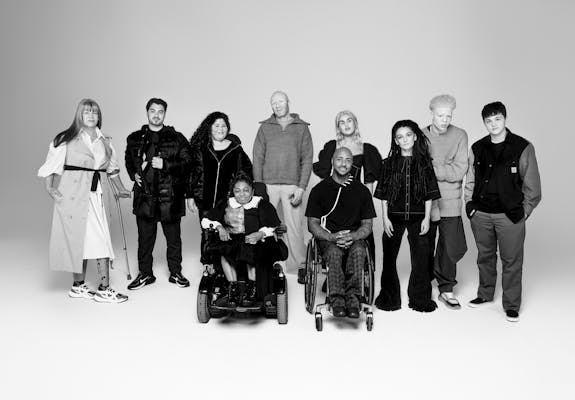Importance of Inclusive Hiring
Inclusive hiring is an ideal place to start as employers must dispel the myth that disabled talent is hard to find. There is a vast untapped pool of disabled talent looking to work and many people with disabilities are reliable and skilled individuals with the potential to belong fully to the world of work in all industries and types of positions. Earlier this year, Valuable 500 conducted a survey, the Valuable Truth, which revealed that 47% of employers believe that the barrier to the recruitment and retention of disabled employees is due to the lack of candidates. However, research undertaken by Virgin Media and Scope found that in the UK alone, over 1 million disabled people with a desire to work are being denied the opportunity. We believe the disparity lies in the lack of transparency.
Moreover, further insights from the Valuable Truth survey found that 63% of businesses did not know how many people within their organization identify as disabled. People with disabilities bring an immense contribution to business and society; they bring a diversity of lived experience and a wealth of talent, all vital for the business’ sustainability agenda. Cultivating environments in which employees feel seen, heard and valued enables requests
for needed accommodations to be made without fear of prejudice. This empowers the workforce to feel more secure with access to the resources they need to execute their roles to the best of their ability rather than suffer in silence. Encouraging employees to have an open dialogue with the workplace, establishing employee resource groups (ERGs) with executive sponsorship allows employees to bring their whole selves to work.
Ensuring an Inclusive Culture
Ensuring an inclusive culture and measuring inclusivity are essential to driving action. Employers need to understand their organization's diversity and demographic composition to ensure that their business reflects the communities and customers they serve. The business case is clear – the disposable spend of people with disabilities and their families/carers is USD $13 trillion pa. There is also a huge risk and opportunity cost associated with not hiring candidates with different lived experiences.
The future needs to work for everyone. Embedding inclusion into the business culture would significantly improve the lives of individuals and positively affect the business's bottom line. In the UK alone, the purple pound is estimated to be worth £274bn. Representation within business is slowly increasing. Last year, in partnership with Tortoise Media, we conducted some research and found that, across the FTSE 100, none of the C-Suite had disclosed having a disability. Additionally, in a separate piece of research with EY we discovered that 7% of CEOs have a direct link to disability, but 4 out of 5 are hiding it. This demonstrates that while we may have made a significant dent in the glass ceiling - we are far from shattering it entirely.
Now at Phase 2, the Valuable 500 is galvanizing the power of the collective to cultivate an incubator for change. Spanning over 64 sectors, having headquarters in 41 countries and consisting of over 22 million employees, the Valuable 500 are striving to eradicate the exclusion of people with a disability and enact systemic change from C-suite to junior level. This will transform businesses to include the 1.3 billion people living with disabilities worldwide, thereby unlocking their business, social and economic potential.
Disability has remained on the fringes of the diversity and inclusion movement due to a lack of understanding about the wealth of expertise available and fear of doing ‘it’ wrong. Only by putting disabled staff and consumers at the heart of business strategies will companies rewrite the cultural narrative necessary to reverse the disability pay gap, embrace intersectionality and gauge the extent to which it is reflected within business. Disability inclusion is not charity, it is not a CSR exercise – it is a business imperative.
